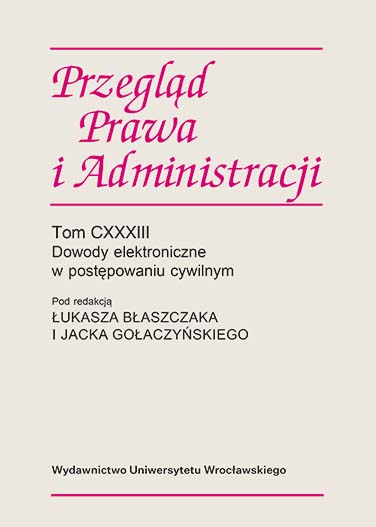

Articles

This study concerns the consideration of electronic evidence in the context of submitting an appropriate application for their presentation. The subject matter raises the aspect of the broadly understood concept of documentary evidence contained in the Civil Code through its factual analysis. These substantive provisions have an impact on civil proceedings, which in the era of ongoing digitization includes an increasingly wider catalogue of means of evidence. Their correct verification allows for the correct formulation of the evidentiary application regarding electronic evidence. In addition, the presented study analyzes the issue of special requirements for evidence applications in the Code of Civil Procedure, by referring them to electronic evidence. Due to the fact that the capacious definition of documentary evidence allowed the opening of a catalogue of documentary evidence, including electronic evidence, it did not dispel all doubts that may arise in the context of evidence proceedings in civil proceedings. The analysis of the procedural act of presenting an evidentiary proposal is conducted on the basis of reference to the general principles of civil procedure contained in Article 3 of the Code of Civil Procedure, as well as in Article 232 of the Code of Civil Procedure, indicating that a properly drafted evidentiary application is closely related to the rule of truth and the burden of proof resting on the party (the applicant), who is obliged to indicate evidence to establish facts from which he derives certain legal effects. The consequences of incorrect formulation of evidence applications specified in the Code of Civil Procedure are indicated, with particular attention to the obligation of the party (the applicant) to prepare evidence, enabling it to be carried out efficiently and effectively by the court hearing the case.